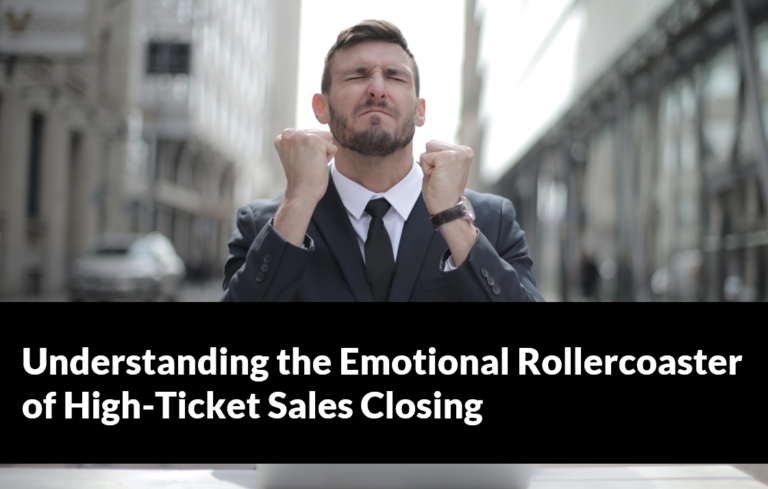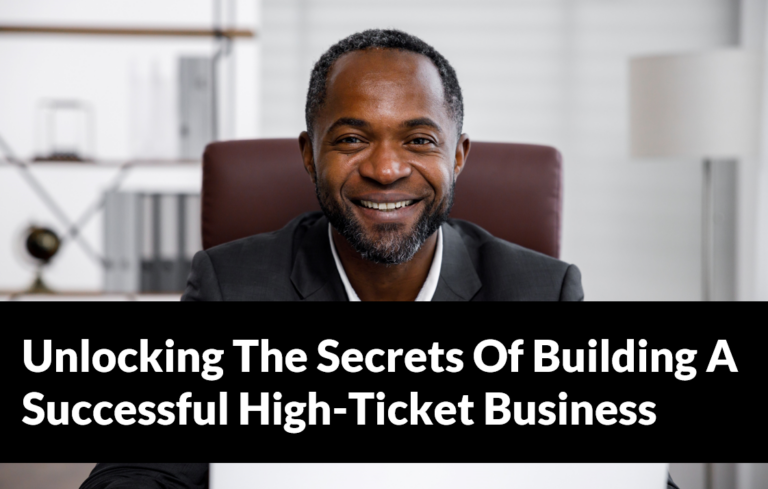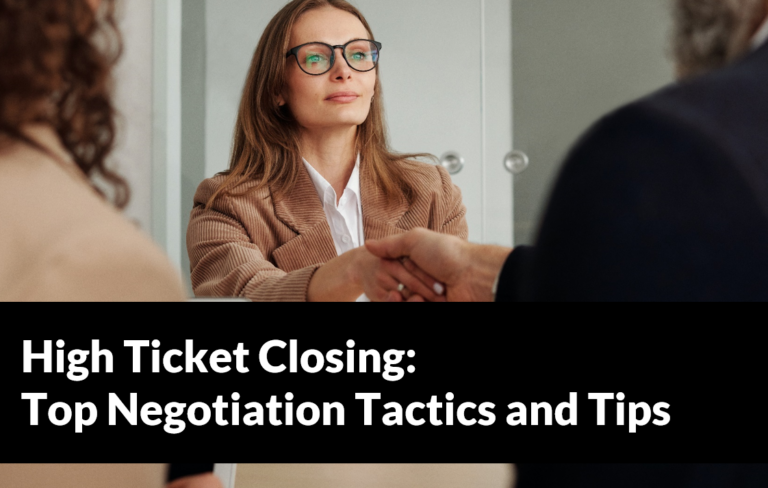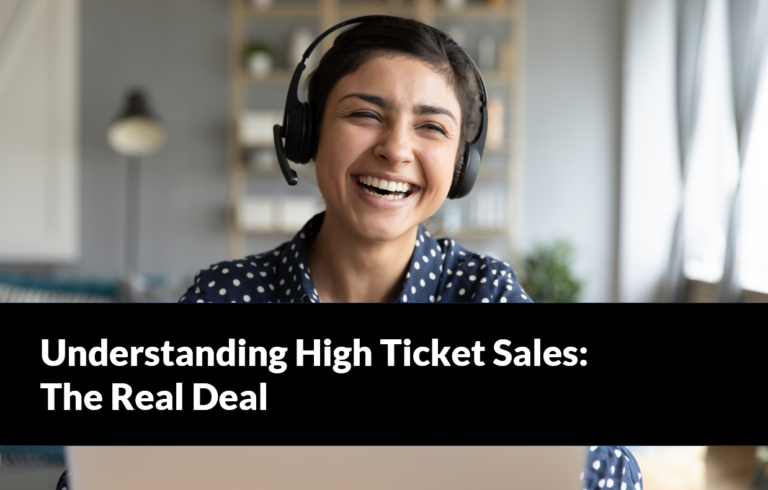High Ticket Closing – Your Step by Step Guide
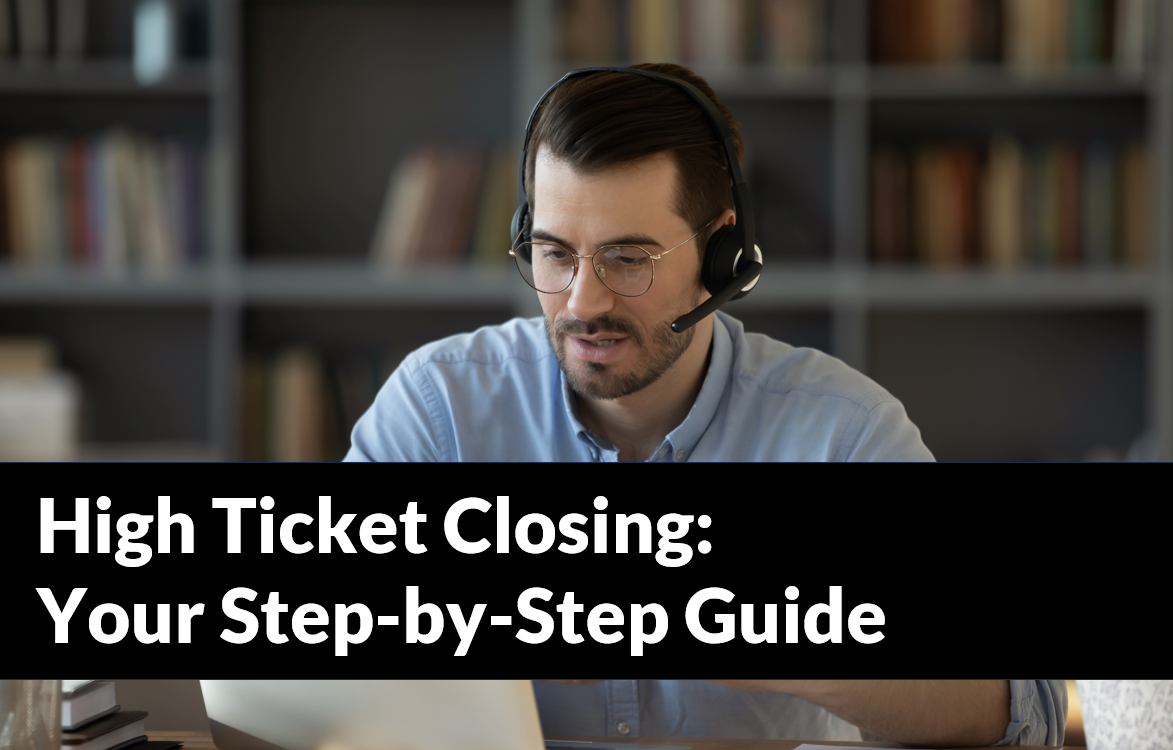
Understanding High Ticket Closing
Let’s set the scene. You’ve got a premium product or service that boasts high value. It’s something you’re confident can solve significant problems and transform lives. But there’s a hitch – it’s not just about the selling, it’s about high ticket closing.
In essence, high ticket closing involves selling high-end products or services – those that demand a hefty price tag. The price point is a reflection of the value offered. However, navigating the world of high ticket sales isn’t a cakewalk. It demands a nuanced approach, strategic planning, and a strong grasp of the customer psyche.
Why High Ticket Closing Matters
High ticket closing is the lifeblood of businesses dealing with premium offerings. It’s an art that fuels their success, ensuring their unique value propositions get across to discerning customers. It’s about conveying the worth of a high-end product and convincing customers that the product is not just worth their money, but will also provide significant value in their lives.
The Anatomy of High Ticket Closing
High ticket closing isn’t a one-size-fits-all process. It’s tailored to the specific needs of your potential customers. It demands a personalized approach. High ticket closing isn’t merely about closing a sale; it’s about building relationships, understanding needs, and providing value that can truly make a difference.
Step 1: Understanding Your Prospect
Knowing your prospect is the starting point. You need to understand their pain points, their needs, and their aspirations. It’s about empathizing with them and showing that you genuinely care about their problems. This builds trust and lays the foundation for a strong relationship, which is crucial for high ticket closing.
Step 2: Articulating Value
Once you understand your prospect, it’s time to articulate your product’s value. It’s essential to show how your product or service can resolve their pain points and align with their aspirations. This is about speaking their language and connecting on a deep, emotional level.
Step 3: Handling Objections
There will be objections – high ticket prices often lead to resistance. Your role here is to gracefully handle these objections, reiterating the value and showing the prospect how the investment can lead to significant benefits.
Step 4: Mastering Follow-up
High ticket closing isn’t a one-off conversation. It’s a process that requires careful nurturing and consistent follow-up. It’s essential to keep the lines of communication open, provide additional value, and reiterate the benefits of your product or service.
Step 5: The Close
The actual close comes down to asking for the sale. However, this step can only be successful if the preceding steps have been executed effectively. At this point, the prospect should understand the value and be ready to make the decision.
Key Strategies for High Ticket Closing Success
Success in high ticket closing requires a strategic approach. Here are some key strategies to consider:
- Building Strong Relationships: This is a non-negotiable. High ticket closing is all about trust. Invest time in nurturing strong relationships with your prospects.
- Conveying Value: Price objections can only be overcome by demonstrating overwhelming value. Your job is to show that the investment is worth it.
- Being Persistent: High ticket closing takes time. Be persistent, be patient, and don’t lose hope if you don’t get a ‘yes’ right away.
- Leveraging Social Proof: Social proof like testimonials and case studies can be powerful tools in your high ticket closing arsenal. They help prospects see real-life examples of the value your product or service can provide.
The Impact of High Ticket Closing on Your Business
High ticket closing has the potential to significantly impact your business. Successful high ticket closing can mean higher revenues, more satisfied customers, and greater business growth. It can also position your brand as a premium, trustworthy option in the market.
Conclusion
In conclusion, high ticket closing isn’t about pushing a sale. It’s about providing value, building strong relationships, and demonstrating how your product or service can truly change lives. By understanding the steps and strategies involved in high ticket closing, you can better position your high-end offerings and foster a stronger connection with your premium customers. Remember, high ticket closing is an art – one that takes time, patience, and strategy to master. But once you do, the rewards can be immense.


